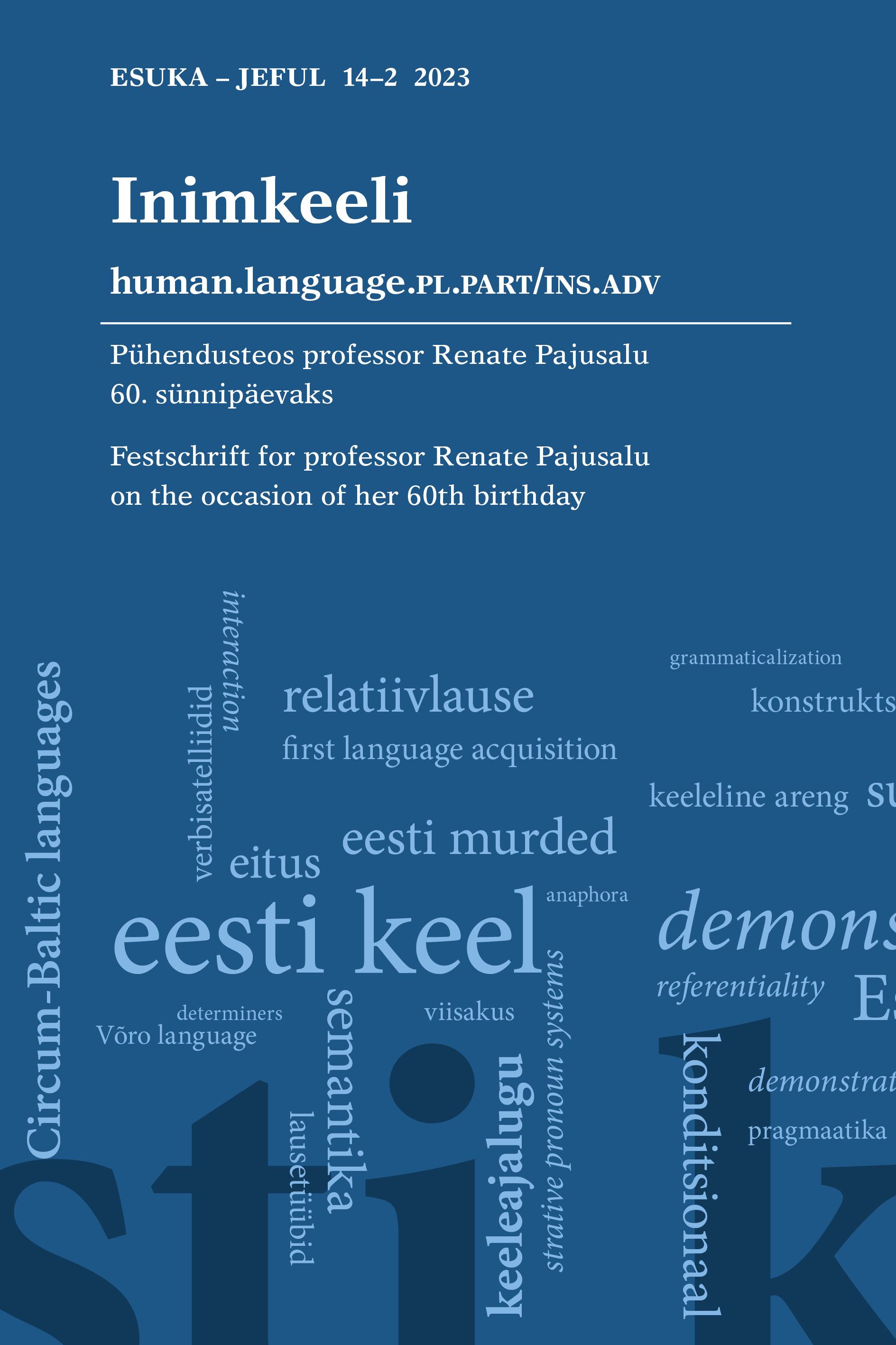<i>'Sellepärast tahate 'kiirabi või</i>. Päästekorraldaja ebaviisakus eesti hädaabikõnedes
DOI:
https://doi.org/10.12697/jeful.2023.14.2.09Keywords:
hädaabikõned, keeleline ebaviisakus, pragmaatika, dialoog, suhtlustegevused, ründav keel, pragmaatilised partiklid, emergency calls, linguistic impoliteness, pragmatics, dialogue, social actions, impolite language, pragmatic particlesAbstract
Artikli teema on päästekorraldajate keeleline ebaviisakus helistaja suhtes Eesti hädaabikõnedes. Uurimuse eesmärk on leida, millistes suhtlustegevustes ebaviisakus esineb, mis selle esile kutsub ja milline on ebaviisakuse keeleline vorm. Analüüs tõi esile kolm rühma ebaviisakaid suhtlustegevusi: (a) etteheited helistajale, (b) ebaviisakalt vormistatud küsimused, infopalved, palved ning (c) ebaviisakad abipalve tagasilükkamised ja järsud ühepoolsed kõne lõpetamised. Valdavalt on ebaviisakuse vallandajaks helistaja. Ühe rühma moodustavad joobes või ebaviisakad helistajad ja inimesed, kes ei järgi suhtlusnorme. Teise rühma moodustavad juhtumid, milles helistaja antud info ei sobi päästekorraldaja rutiinidega või Häirekeskuse töönormidega. Üksikjuhtudel esineb päästekorraldaja ebaviisakus ka ilma helistajapoolse mõjurita. Päästekorraldajad vormistavad ebaviisakused samal viisil nagu teistes uuritud keeltes. Keeleliste vahendite seas on nii ebaviisakusega seotud häälduslikud, sõnavaralised ja süntaktilised vahendid kui ka kõnevoorude vormistamise võtted. Eraldi tõstame esile pragmaatilised partiklid ja järsud kõnelõpetamised, mida meie teada varasemas literatuuris välja toodud ei ole.
Abstract. Tiit Hennoste, Andriela Rääbis, Piret Upser, Kirsi Laanesoo- Kalk, Andra Rumm, Andra Annuka-Loik: `Sellepärast tahate `kiirabi või. Call-takers impoliteness in Estonian emergency calls. The topic of the article is the linguistic impoliteness (rudeness, face attack) of call-takers towards the caller in Estonian emergency calls. The purpose of the research is to find out the social actions where impoliteness occurs, its triggers and the linguistic form of rudeness. The data consists of audio-recorded calls from the emergency call corpus of the University of Tartu. The analysis revealed that impoliteness could be divided into three groups: (a) reproaches to the caller, (b) rudely formulated questions, requests for information and directives and (c) rudely formulated refusals of help and unilateral closings of the call. Impoliteness is generally triggered by the caller. One group includes drunk or rude callers and callers who do not follow social norms of interaction. The second group consists of cases where the information provided by the caller does not meet the standards of the call-takers or the Emergency Response Center. Only in a few cases, the call-taker initiates an impolite social action without the influence of the caller. Estonian call-takers express rudeness using the similar means as in the other languages studied. Linguistic tools associated with rudeness are found in pronunciation, vocabulary, syntax, and techniques of formulating turns in dialogue. In particular, we highlight pragmatic particles/markers and unilateral closings that, as far as we know, have not been presented in previous literature.
Downloads
Downloads
Published
How to Cite
License
Copyright (c) 2023 Tiit Hennoste, Andriela Rääbis, Piret Upser, Kirsi Laanesoo-Kalk, Andra Rumm, Andra Annuka-Loik

This work is licensed under a Creative Commons Attribution 4.0 International License.


